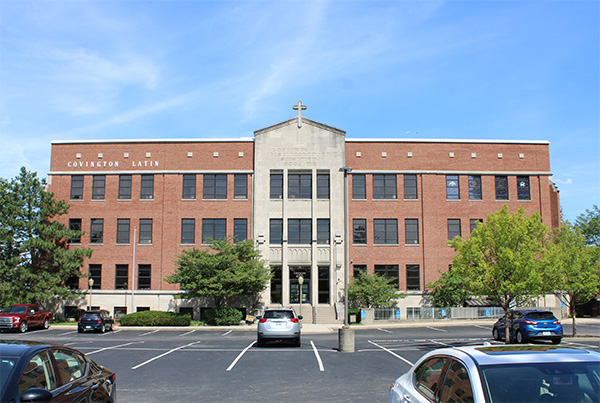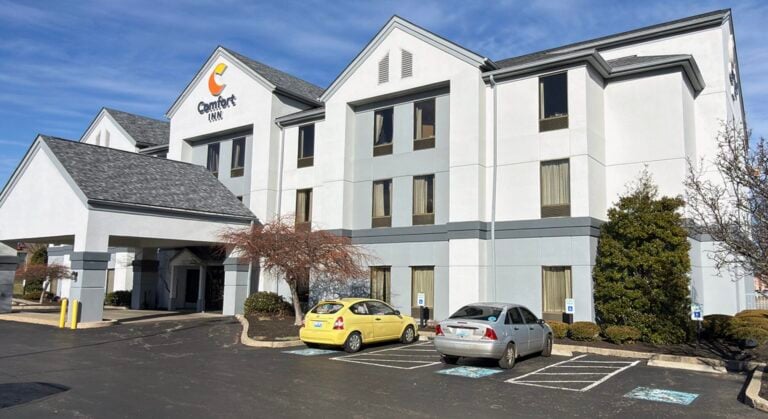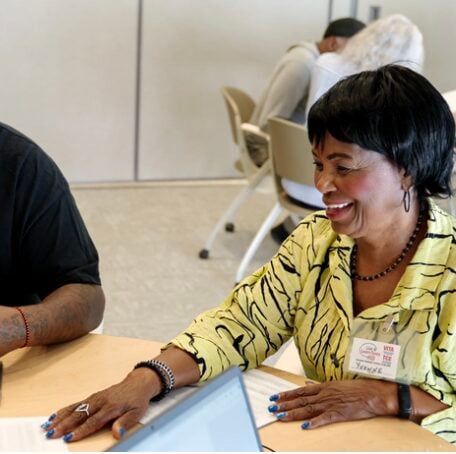By Andy Furman
NKyTribune staff writer
There was never a doubt. Michael Knight always wanted to be a cop.
“When I was 23 years old,” he told the Covington Rotary Club over lunch at The Radisson Hotel, at their weekly meeting, “I saw an ad in the paper that Kenton County was looking for an Auxiliary Officer.
“I had no idea what that was,” he said. “I soon found out. Auxiliary Officers don’t get paid.”

What Knight had done, however, is paid his dues as a police officer. He started with Ludlow’s department in 1995; followed that with a stint with the Bellevue department – seven years — and presently serves in Taylor Mill.
And he’s taken note of changes over those years.
“When I started, the Academy for newcomers was a 10-week course,” he told the Northern Kentucky Tribune. “I even remember some of those rookies grabbing a smoke as they walked – not ran — around the track.”
Not so today. The Academy for aspiring police officers is a 20—week grind, according to Knight. But the bigger difference in today’s law enforcement is a “lack of community empathy.”
Empathy, according to Knight, is “seeing with the eyes of another; listening with the ears of another and feeling with the heart of another.”
Knight remembers the Senior Watch Program he was involved with when he was doing work in Ft. Wright.
“We served and cared for seniors with special needs, and showed our appreciation towards them.”
That, he says, is lost today – it’s all about emotional intelligence.
And according to Daniel Goldman, emotional intelligence is, “the capacity for recognizing our own feelings and those of others, for motivating ourselves, for managing emotions well in ourselves and in our relationships.”
Emotional intelligence has five parts – as Knight clearly described:
• Social Skills
• Self-Awareness
• Self-Regulation
• Empathy
• Motivation
It is the self-awareness about which Knight spent a good portion of his discussion.
“Self-awareness,” he said, “is the conscious knowledge of one’s own character, feelings, motives, and desires. It is the ability to reflect on oneself and recognize patterns in one’s thoughts, behaviors, and emotions.”
Through self-awareness, individuals can understand their strengths, weaknesses, and how they are perceived by others.
And, of course, Knight the police officer, cited a fender-bender he was on-call for, just the other day.
“It was a 60-year-year-old-plus woman who basically caused the situation,” he said. “But she refused to believe she was at fault.”
So much so, Knight recalled, that she was screaming atop her lungs during the entire questioning process.
Self-awareness, he continued, has several types – internal and external. Internal is the recognition and understanding of one’s internal states, preferences, emotions, and thoughts. External self-awareness pertains to understanding how others perceive us in various contexts and situations, helping us to navigate social situations.
As for social skills, patience is high on the list which includes listening, following directions, collaborating, and cooperating, sharing, positivity, respecting boundaries, patience and empathy.
It’s quite simple, if you take the time to think about it. It’s emotional self-regulation, which is the ability to choose the emotions you want – typically to be able to transform negative draining emotional states into positive productive ones.
“I’ve seen an increase in Road Rage incidents the last three years,” Knight said. “We need to have the ability to control our own emotions. How to control and be productive with them.”
Here’s a tip worth remembering. When you’re watching the Bengals play this season – and their opponent scores against them – think twice before throwing that remote at your TV set.
That’s self-regulation.

















